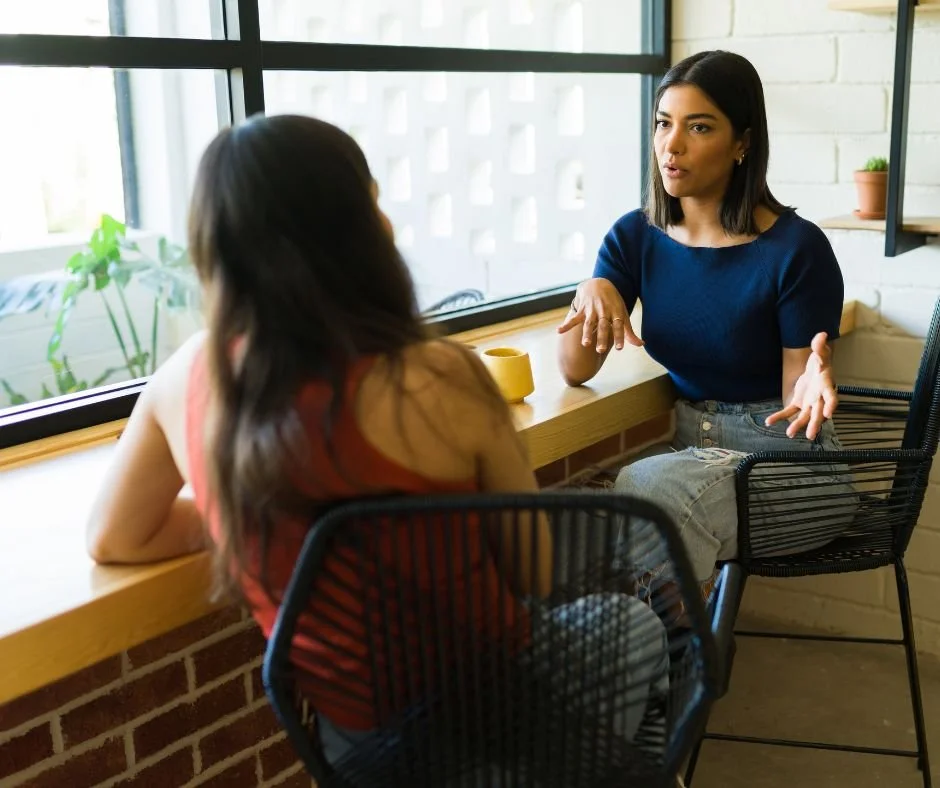
Mental Health First Aid Training in Berkshire
Serving communities across Berkshire with compassionate Mental Health First Aid training
We all know someone who's struggled. Maybe it's a colleague who's been quieter lately, a friend who seems overwhelmed, or a young person in our care who's withdrawn from activities they once loved. The question isn't whether mental health challenges will touch our communities—it's whether we'll be ready to respond with compassion and confidence when they do.
I'm Rekha, and I've spent over 35 years working in the NHS, first as a nurse and then as a Mental Health First Aid trainer. I believe everyone deserves someone who knows how to listen without judgment and respond with care.
Taking the First Step
If you're reading this, you probably already care about the mental health of people around you. You might be wondering if you'd know what to say if someone opened up to you, or whether you'd recognise the signs if someone was struggling.
Mental Health First Aid training gives you the confidence to trust your instincts and respond with compassion. It's not about having all the answers—it's about being someone others know they can talk to.
Why Mental Health First Aid Matters
Sometimes the most powerful thing we can do is simply know how to be present with someone who's struggling. Mental Health First Aid isn't about becoming a therapist—it's about becoming someone others feel safe turning to.
When we understand the early signs of mental health challenges and know how to respond, we can:
Start conversations that might not happen otherwise
Help people feel less alone in their struggles
Connect people with the right support when they need it
Create workplaces and communities where it's okay not to be okay
Adult Mental Health First Aid
Supporting colleagues, friends, and family members
Life has a way of throwing curveballs. Work pressures, relationship challenges, health concerns, financial worries—any of these can impact someone's mental health. Our Adult Mental Health First Aid training helps you recognize when someone might be struggling and gives you practical tools to offer support.
What you'll learn:
How to spot early signs that someone might need support
Ways to start gentle, non-judgmental conversations
The ALGEE® action plan for mental health first aid
When and how to help someone access professional support
How to look after your own wellbeing while supporting others
This accredited course runs over two days or four sessions, with plenty of time for questions, discussion, and practice. You'll leave feeling more confident about having mental health conversations and equipped with a toolkit you can use immediately.
Youth Mental Health First Aid
Supporting young people aged 8-18
Young people today face unique pressures—from social media and academic stress to uncertainty about the future. Sometimes the signs that a young person is struggling can be subtle: a usually chatty child becoming quiet, changes in sleep or eating patterns, or withdrawing from friends and activities.
Our Youth Mental Health First Aid training is designed for anyone who cares about young people—parents, teachers, youth workers, coaches, or family members who want to feel more confident supporting the children and teenagers in their lives.
What you'll learn:
How mental health challenges can show up differently in young people
Age-appropriate ways to start conversations about mental health
Understanding the specific risks and protective factors for youth
How to support a young person while keeping them safe
Working with families and other adults in a young person's life
Resources and services available for young people
This course acknowledges that supporting young people requires a different approach. We'll explore how to balance respect for their growing independence with the need to keep them safe, and how to involve other caring adults appropriately.
Creating Ripples of Support
Every person who completes Mental Health First Aid training becomes part of a wider network of support in their workplace, family, and community. You might be the person someone chooses to confide in, or you might simply be someone who notices when others don't.
The skills you learn extend far beyond crisis situations. They help in everyday moments—knowing how to check in with a colleague who seems stressed, understanding how to listen to a friend going through a difficult time, or recognising when someone in your family might benefit from professional support.
Ready to learn more?
I'd love to have a conversation about what Mental Health First Aid training might look like for you or your organization. Every situation is different, and I believe training should fit your specific needs and circumstances.
07971174073
rekha@wellbeing-inspire.com



